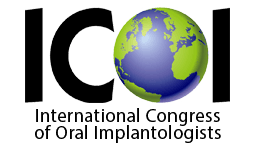How Do You Practice Proper Dental Implant Care?
One of the main draws of dental implants is that you’re free to treat them and enjoy them like your natural teeth. However, to ensure your implant surgery is successful, there are specific routine practices you’ll want to adopt immediately after getting a dental implant. On top of that, there will be certain behaviors that you’ll want to avoid. All dental implant care requires attention and diligence to make certain your new natural-looking teeth are healthy and long-lasting.
Post-Op Dental Implant Care
Proper post-op dental implant care is one of the most important elements in ensuring your restorations stay permanently in your smile. This is especially important in the days immediately following surgery. Because your implants are designed to mimic your natural teeth, they still require similar care. This includes removing buildup, keeping up a regular oral hygiene regimen, and visiting Reger Family Dental for dental exams.
Plaque and Tartar Buildup
Food particles and bacteria can easily get stuck in the areas around your implant. This can lead to the formation of plaque, a sticky substance that can appear as off white or slightly yellow, which hardens into tartar if not removed with proper brushing and flossing. If these substances aren’t removed, the bacteria can penetrate your gums and infection (gum disease) can set in. To prevent this from happening, you’ll need to be consistent with your oral hygiene routine.
Regular Oral Hygiene
Maintaining your oral hygiene is a key part of keeping your implants healthy, so stay equipped with useful cleaning instruments that will keep your new teeth as germ-free as possible. These include:
- A Soft Bristled Toothbrush – Avoid medium and firm bristles as these can damage your natural teeth and scratch your implants.
- Non-Abrasive Toothpaste – Avoid toothpastes with abrasive agents such as baking soda, whitening agents, and charcoal powders, as these can also damage your natural teeth and scratch your implants.
- Floss – Be sure to very carefully floss around the implant, but don’t push the floss into the gum pocket, as this can break the peri-implant soft tissue barrier. The peri-implant soft tissue barrier is the weak seal formed between an implant and your gum tissue, which can easily be broken with over-aggressive flossing. If this happens, bacteria can access the bone, causing damage and potentially causing you to lose the implant.
- Gum Stimulators – Healthy gum tissue is vital to dental implant care. Gum stimulators can help gently remove buildup from between your teeth and implants as well as massage your gums. Massaging your gums stimulates blood flow, helping to maintain their health and potentially preventing gum disease or stopping it from worsening.
Regular Dental Exams at Reger Family Dental
Even patients with the most rigorous at-home oral hygiene routines can develop oral health issues. This is especially true when you have dental implants, as serious problems can occur that can’t be immediately seen with the naked eye. To ensure the longevity of your dental implants and maintain your oral health, you should visit Reger Family Dental frequently for professional cleanings and exams.
Your dentist, Dr. Reger and our team have the knowledge to understand every aspect of your implant and how it should be treated, especially over the months-long process of dental implant placement. We’ll remove buildup from hard to reach areas, evaluate your overall oral health, and ensure your healing process is going smoothly.
Dental Implant Care: The First 48 Hours
The first 48 hours after dental implant surgery tend to be the most pivotal for patients who are recovering. Symptoms are more pronounced and keeping any discomfort away is vital.
To help ensure a smooth recovery and avoid any complications, make sure to follow these tips:
- Don’t disturb the surgical areas
- Gently brush your teeth the night of surgery with a non-electric, soft bristled toothbrush
- Rinse gently with warm salt water 2-3 times per day and after every meal
- Avoid vigorous activity and exercise
- Apply a cold compress if needed
- Take all prescribed medications as directed
- Change any gauze as directed during the active bleeding period
- Don’t use tobacco products
- Avoid alcohol
During the first 48 hours, noticeable symptoms may include dry lips, a sore throat, and stiff jaw muscles. These are the normal side effects of using gauze immediately after implant placement surgery. Dr. Reger will likely advise you to continue this regimen for at least two weeks after the second and third days following the procedure.
Dental Implant Care: The First Two Weeks
In the first two weeks after dental implant surgery, you’ll need to continue to follow the above instructions for dental implant care. While implants work like real teeth, your jaw and your gums will need time to heal. That’s why two other extremely important aspects of care in the first two weeks after dental implant surgery are diet and post-operative appointments.
Diet
Your dentist, Dr. Reger recommends following these guidelines regarding your diet to ensure your healing process goes as planned.
It’s important to stick to soft foods that are not too hot or cold. Certain foods to avoid include those that are:
- Crunchy
- Brittle
- Hard
- Chewy
- Sticky
- Acidic
- Spicy
Be sure to avoid drinking anything through a straw, as this can dislodge blood clots and impede the healing process. Avoid drinks that are:
- Hot
- Carbonated
- Caffeinated
- Alcoholic
- Acidic
Dental Implant Care: Frequent Follow-Up Appointments
Normally, Dr. Reger would recommend that you visit Reger Family Dental once every six months for regular cleanings and exams. However, upon receiving dental implants it becomes vital to schedule more frequent, post-operative follow-up appointments at our office in San Antonio, TX. During this vital healing period, your dentist can clean and inspect your teeth to ensure everything is recovering as needed and address any possible complications before they progress.
What Else Should You Not Do After Dental Implant Placement?
After undergoing implant treatment, there are other behaviors you should avoid to ensure the success of your surgery and guarantee a smooth recovery period:
- Don’t spit, rinse vigorously, use water pickers, suck on straws, pull your lip back, or touch the surgical site with your hands or tongue. This can dislodge blood clots and impede the healing process.
- Don’t use tobacco products, as this can impede the healing process and decrease your overall health. If necessary, seek help quitting.
- Avoid chewing on the side of your mouth with the implants.
Proper Dental Implant Care Means Implant Success
We know you’re eager to start enjoying your implants to the fullest, but before that, you have to heal. Be sure to rest up and follow the advice given by Dr. Reger on how to care for yourself and your new implants during this crucial time. Once you’re fully recovered, you can start enjoying the benefits of your newly restored smile.
If you have any other questions about dental implant care, call Reger Family Dental Care by dialing 210-960-1300 and a friendly team member will get back to you shortly. We’re here to help our San Antonio patients, as well as patients from surrounding areas like Seguin, Helotes, and Boerne, enjoy a full and healthy smile again.
Frequently Asked Questions
How often do dental implants fail?
A defective post, treatment by a less experienced surgeon, or poor dental hygiene might result in a failing dental implant. If you suspect there is a problem with your implant, call our office immediately.
Can dental implants cause pain?
Any pain should subside after about a week. If your implant is causing you discomfort after a week, contact our office so that our team can investigate the cause.
When and what can I eat after getting dental implants?
You’ll be able to slowly reintroduce foods from your normal diet after about two weeks. In the first two weeks, you should generally avoid foods that are:
- Hard
- Hot
- Crunchy
- Brittle
- Spicy
- Sticky
Foods such as these can damage your implant and impede the healing process if reintroduced to your diet too soon. Foods that are safe to eat usually include:
- Pasta
- Cooked Vegetables
- Yogurt
- Smoothies
- Applesauce
- Soups
- Jell-O
While your implant is healing, you should also avoid drinks that are
- Hot
- Sugary
- Caffeinated
- Alcoholic
Dr. Reger can give you more specific information about what to avoid at your consultation and after your implant surgery. If there’s lingering sensitivity to certain foods and beverages after two weeks, contact Reger Family Dental’s San Antonio office by dialing 210-960-1300 and we’ll address any concerns.




